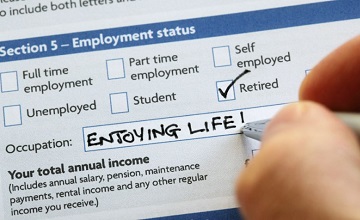6 common financial mistakes before retirement
Many of us would like to think that ‘older’ means ‘wiser’, but when it comes to money that isn’t always the case. The complexity of Australia’s superannuation system doesn’t help. The upshot is that there are a number of common mistakes that retiring and retired Australians make. What are those mistakes and how might you avoid them?
- Underestimating how much you need
The Association of Superannuation Funds of Australia’s (ASFA) Retirement Standard calculates that a “comfortable” retirement for a couple costs $60,843 per year. For singles the figure is $43,200 per year. To fund these levels of income, the ASFA calculates that a couple will need a nest egg of $640,000, and a single $545,000 at retirement.
- Retiring too early.
Australians retiring today can expect to live until their mid-80s. For retirees in their mid-50s, that means finding a way to pay for a further 30 years of life. The obvious solution to retiring too soon is to work longer. This provides a double benefit: it extends the savings period allowing a greater sum to be saved, and delays the point where withdrawals start to eat into accumulated funds.
- Not topping up super.
Making additional contributions into superannuation can really boost super savings. Strategies involving salary sacrifice, spouse contributions and government co-contributions should all be in play well before retirement.
- Withdrawing super as a lump sum.
Superannuation can be withdrawn as a lump sum after retirement, and if you are over 60 it’s all tax-free. But then what? Common choices are to take that big trip or renovate the home. If you’re thinking of dipping into your savings in a big way, make sure you understand the potential implications for your future lifestyle.
- Carrying debt into retirement.
It can be hard enough keeping up mortgage, car finance or credit card interest payments even when you’re working. It can become a real burden in retirement. Where possible, do your best to pay down debt.
- Paying for unnecessary insurance.
Free of debt and without financial dependants, you may not need to maintain the same level of life and disability insurance you once required. Also, premiums can become expensive as you get older. The run up to retirement is an ideal time to review your insurances, a task best done under the guidance of your financial adviser.
Invaluable advice.
While the expectation may be that life should get less complicated as you get older, this short list reveals that’s not always the case. Many of these mistakes come with a high price tag but can be avoided by seeking professional advice. Your financial planner will be able to assess your specific circumstances and help you develop a plan for your retirement. But don’t wait until you actually retire. As you can see, it’s never too early to start planning. Contact us today!
This is general information only






